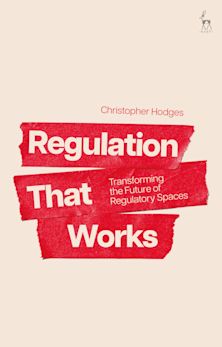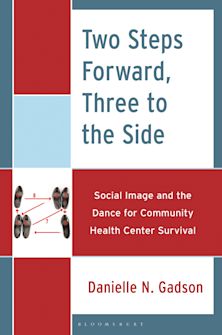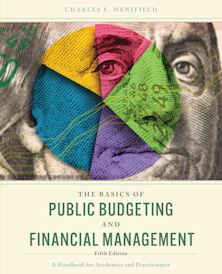Shut Out
How a Housing Shortage Caused the Great Recession and Crippled Our Economy
Shut Out
How a Housing Shortage Caused the Great Recession and Crippled Our Economy
This product is usually dispatched within 3 days
- Delivery and returns info
-
Free CA delivery on orders $40 or over
You must sign in to add this item to your wishlist. Please sign in or create an account
Description
The United States suffers from a shortage of well-placed homes. This was true even at the peak of the housing boom in 2005. Using a broad array of evidence on housing inflation, income, migration, homeownership trends, and international comparisons, Shut Out demonstrates that high home prices have been largely caused by the constrained housing supply in a handful of magnet cities leading the new economy.
The same phenomenon is occurring in leading countries across the globe. Gentrifying cities have become exclusionary bastions in the new postindustrial economy. The US housing bubble that peaked in 2005 is more accurately described as a refugee crisis than a credit bubble. Surging demand for limited urban housing triggered a spike of migration away from the magnet cities among households with moderate and lower incomes who could no longer afford to remain, causing a brief contagion of high prices in the cities where the migrants moved.
In this book, author Kevin Erdmann observes that the housing bubble has been broadly and incorrectly attributed to various “excesses.” Policymakers and economists concluded that our key challenge was that we had built too many homes. This misdiagnosis of the problem, according to Erdmann, led to misguided public polices, which were the primary cause of the subsequent financial crisis. A sort of moral panic about supposed excesses in home lending and construction led to destabilizing monetary and regulatory decisions. As the economy slumped, a sense of fatalism prevented the government from responding appropriately to the worsening situation.
Shut Out provides a much-needed correction to the causes and consequences of financial crises and secular stagnation.
Table of Contents
Part I: The Things
We Didn’t
Know and the Things
We Knew
That Just Weren’t
So
Chapter 1: High Home Prices Are Caused by Limited Supply 13
Chapter 2: Our Unexceptional Bubble
43
Chapter 3: A Tale of Credit 67
Part II: What Really
Happened
Chapter 4: How Rising Prices Cause More Rising Prices 91
Chapter 5: Migration and Contagion Cities 109
Part III: Symptoms of the Urban Housing Shortage
Chapter 6: Closed Access to Labor
139
Chapter 7: Broader Economic Implications
of Closed Access Cities 149
Chapter 8: Closed Access and International Trade 181
Chapter 9: A Moral Panic and a Financial Crisis 199
Epilogue 221
Appendix: Home Prices 243
Notes 273
About the Author 307
Acknowledgments 307
Product details
| Published | Sep 15 2021 |
|---|---|
| Format | Paperback |
| Edition | 1st |
| Extent | 322 |
| ISBN | 9781538163009 |
| Imprint | Rowman & Littlefield |
| Dimensions | 229 x 154 mm |
| Series | Mercatus Center at George Mason University |
| Publisher | Bloomsbury Publishing |
About the contributors
Reviews
-
“Kevin Erdmann has put forward the radical thesis that restrictions on housing supply have been at the center of America’s macroeconomic dilemmas, in addition to raising the cost of living for ordinary Americans. This is one of the few truly new ideas in the debate over the Great Recession. While I still am not sure how much I agree, I find myself thinking about Kevin’s ideas often, and they grow on my mind. Kevin has poured his heart and soul into making the case in this fascinating new book.”
Tyler Cowen, author, "Stubborn Attachments," and blogger, "Marginal Revolution"
-
“Do you believe that you know what happened during the housing bubble and bust? Think again. Kevin Erdmann has amassed a wealth of fascinating data that sheds new light on what actually went wrong with America’s housing market. The basic problem was not too much building or too much lending to low-income people, but rather restrictive housing-development laws pushed people out of ‘closed-access cities’ on the two coasts and into the ‘contagion cities’ in Arizona, Nevada, and Florida that were the epicenter of the housing boom. This book sheds important new light on a number of issues beyond housing, including monetary policy, income inequality, and international investment flows.”
Scott Sumner, author, "The Midas Paradox," and blogger, "The Money Illusion"
-
“Kevin Erdmann challenges the most well-known explanations for the housing crash. He argues that the bust, rather than the boom, is the truly exceptional story—a result of excessive restrictive credit policy, borne out a lack of understanding of what caused the boom. One needn’t agree with his story in full to see that he scores extremely important points and adds a perspective that has been missing from discussions and public policy responses to the housing crash. Fixing supply constraints in rich areas, Erdmann shows, will not only make us richer by allowing people to move to areas where they can get higher wages; it will also make our economy sturdier and less prone to the type of disasters that set back the national and, indeed, the world economy in 2007–08.”
David Schleicher, Professor of Law, Yale Law School
-
Even readers convinced by Erdmann’s analysis of the housing market may find this inadequate as a narrative of the financial crisis. Nevertheless, that may be too much to expect of one book. Shut Out is still a provocative and illuminating read, which covers far more ground than this review, mostly on the causes and consequences of closed access cities. Erdmann, interestingly, is not a PhD economist, but a former small business owner with a master’s in finance. As a member of the PhD tribe, I occasionally found myself wishing for more equations and regression coefficients, and simpler charts. But still, somebody should give him an honorary degree.
Economic Record



































